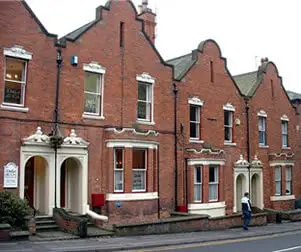Completely safe and secure.
As safe as houses
What's the meaning of the phrase 'As safe as houses'?
What's the origin of the phrase 'As safe as houses'?
It is commonly accepted that the Victorian expression ‘as safe as houses’ means ‘secure; with no risk of failure’. It shares that meaning with ‘as safe as the Bank of England’ – the origin of this latter phrase slightly pre-dating the ‘houses’ version, being known in print from at least 1818.
The first example of ‘as safe as houses’ in print is in the rather over the top melodrama Timour the Tartar, which was staged in London in various versions from around 1842 onwards. The 1850 version contains this strangled doggerel:
Come, sacrifice your son and do what’s right.
No – I don’t seem to see it in that light.
Well then, I’ll give my word that Timour’s life
Shall be safe as houses. For a wife
Whom Timour’s sword made widow lone and sad,
I think my offer by no means bad.
It has been speculated, in fact it is widely believed, that ‘as safe as houses’ referred to the relative security of investing in housing as compared to risky railway shares, which had recently bankrupted many people in the Railway Mania bubble of the 1840s.
That is unlikely to be the source of the phrase.
When ‘as safe as houses’ was coined the word ‘safe’ was often used to mean ‘certainly; undoubtedly’. All of the earliest printed uses of the phrase make that meaning clear. For example, James Friswell’s novel Out & About, 1860:
“No uncertainty here, guv’nor,” answered one of his captors. “You’re booked, safe as houses.”
Whoever coined the phrase, when looking to coin a simile to express certainty, would have needed something that epitomised conspicuousness. Surely houses do that.
We can’t be sure what was in the coiner’s mind but there’s an added reason to think he (and it probably was a he) was thinking certainty rather than security. Almost all ‘as X as Y’ similes are in the form ‘as [adjective] as a [noun]’. The noun is chosen to be something that is well known as demonstrating the qualities described in the adjective. For example, (and there are hundreds of similar examples}:
If ‘as safe as houses’ was intended to mean that you take little risk when purchasing bricks and mortar the expression could just as well have been in the standard simile form, that is, ‘as safe as a house’. On the other hand ‘houses’ suggests certainty and conspicuousness more than does a single house.
So, while the current meaning of ‘as safe as houses’ is ‘secure; without risk’, to the Victorians it meant ‘certainly; without doubt’.
See other ‘as x as y similes‘.
The history of “As safe as houses” in printed materials
Trend of as safe as houses in printed material over time
Related phrases and meanings
Browse more Phrases
About the Author

Phrases & Meanings
A-Z
A B C D E F G H I J K L M N O P Q R S T UV W XYZ
Categories
American Animals Australian Bible Body Colour Conflict Death Devil Dogs Emotions Euphemism Family Fashion Food French Horses ‘Jack’ Luck Money Military Music Names Nature Nautical Numbers Politics Religion Shakespeare Stupidity Entertainment Weather Women Work
How did we do?
Have you spotted something that needs updated on this page? We review all feedback we receive to ensure that we provide the most accurate and up to date information on phrases.
